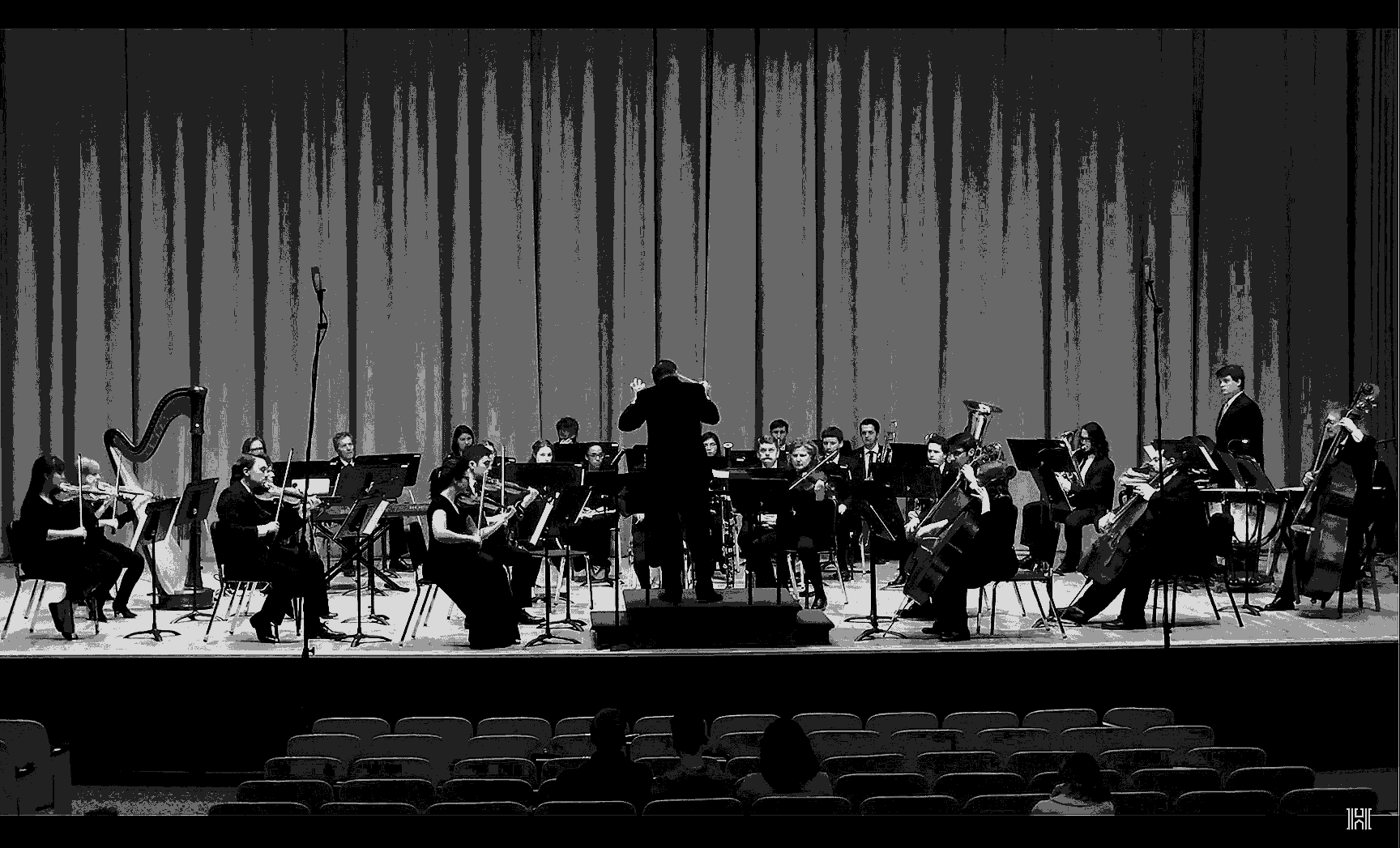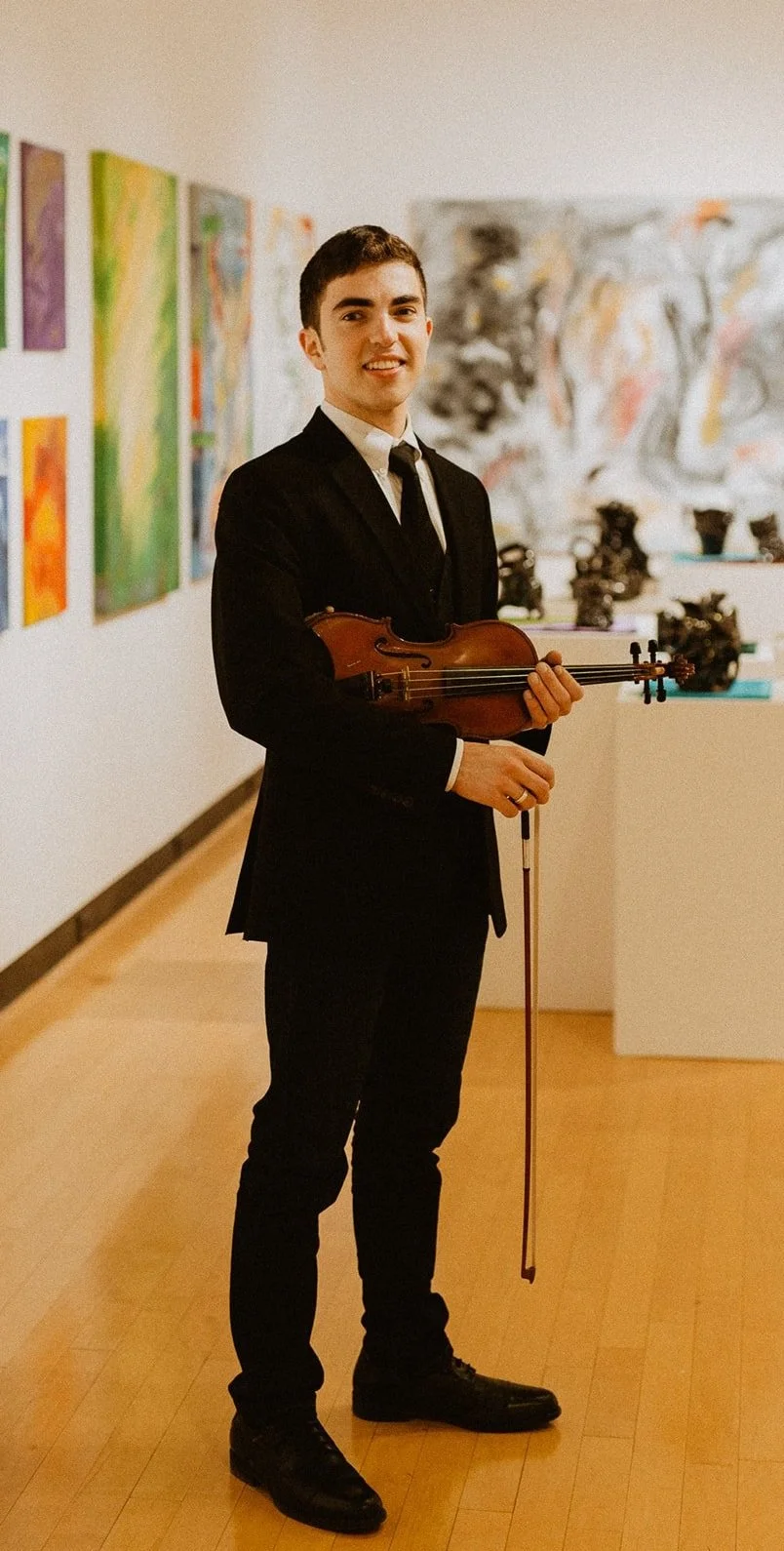
About Me
To see more about my film scoring,
Samuel Jenkins, a native of Spokane, WA, is a distinguished composer, arranger, producer, violinist, and pianist. He has written music for documentaries, logos in advertisements, trailers, full length stage plays, and concert performances.
As a Christian, Samuel’s compositional style is a recognizable combination of both beauty and contrast - beauty in both the sweeping soundscape of a full orchestra and the heart-pulsing rhythms of electronic synthesizers, and contrast in the comparison of sounds that are harsh and those that convey peace, of dizzying rhythms and near silence.
Samuel was trained in TV and Advertising Scoring by top Hollywood film composers in the NYU 2021 Broadcast Music Incorporated (BMI) TV and Advertising Scoring Workshops, coached by acclaimed composers such as Blake Neely (“The Flash” TV series) and Sean Callery (“Bull” TV series). He has a MM in composition (Houghton College, NY) and a BM in composition (Eastern Washington University, WA); while at Houghton, he studied with Dr. Carrie Magin, a Grammy-nominated composer whose music has been featured at Carnegie Hall.
Among his most notable projects was writing the end credits music to the 2021 documentary “Freedom Cry: Sex Trafficking in America,” produced by Dr. Meri Crouley in association with Destiny Studios (Los Angeles, CA). More recently, he was commissioned in 2024 by the Oaks Classical Christian Academy to write the full score for the stage play “A Christmas Carol” (libretto by Ed Monk). The play was performed that December with an ensemble of nearly 40 musicians, comprised of a small orchestra, two choirs, and a handbell choir.
With a father who played violin, viola, and piano, Samuel’s journey with music began at the age of three when his parents started him on the violin. He would go on to start teaching himself piano at five, join the Spokane Youth Symphony at the age of nine, and sing choral music all throughout attending his K-12 school. He owes his introduction to composition to his grandmother, who taught him basic chords on the piano, enabling him to write his first piano song at the age of 13, to play violin repertoire and film soundtracks on the piano, to join the worship team improvising on violin as a young teenager, and to begin writing music by hand as a senior in high school.
College gave Samuel a vast amount of compositional tools and instruction, including learning the viola and conducting, but one invaluable lesson he learned was the importance of collaboration. For his graduate recital, he would need an army of musicians. Not only did he have to co-perform fifty minutes of self-composed music, but he had to conduct half of it, meaning it necessarily involved collaboration. By the time the recital was ready to perform, twenty other musicians helped him bring his music to life on stage. After college he continued learning, teaching himself how to mix and master his own music and acquiring the equipment for a complete music recording/composing studio. He began to produce the music of singer-songwriter Jeff Crum, to compete in film scoring competitions, to perform in local orchestras and ensembles, and to be heavily involved in performing on violin/viola in music theater performances in the area.
While studying music over the course of pre-college and college years, Samuel became exposed to a wide range of genres, specifically a mix of Christian, classical, and film. He considers his main compositional influences to be a combination of Christian worship artists like Paul Wilbur and Michael W. Smith; film composers such as Bruce Rowland (“Man From Snowy River”), Mark Mancina (“Tarzan”), Hans Zimmer (“The Lion King”), and John Williams (“Hook”); and classical composers such as Mozart, Tchaikovsky, Dvorák, and Beethoven. He eventually began improvising piano music in the mornings to biblical Psalms, experimenting with writing his own Bible-themed lyrics, and co-leading worship at his church on keyboard and voice. All these combined various experiences and influences led him to make a conclusive decision: his film scoring career would involve only writing music for films that are edifying and family-friendly.
Samuel is currently working on several projects, many of which involve collaborating with other musicians and composers. In addition to the violin, viola, piano, and keyboard, he is also learning guitar, electric guitar, ukulele, and harmonica. Some of his non-music interests involve spending time with family and friends, reading books, exploring the outdoors, and creating new recipes.

